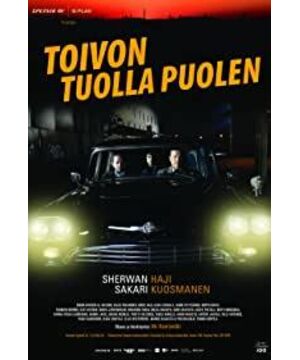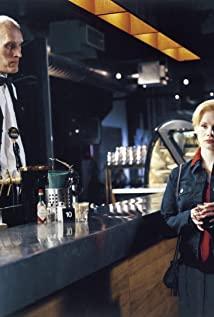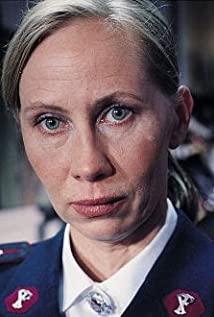(The author of this article is Peter von Bagh, attached to the Jukebox-Music in the Films of: Aki Kaurismäki album in Finnish, English and French, translated from English,)
When Kaurismaki’s debut film "Crime and Punishment" appeared on the subtitles of the soundtrack-Franz Schubert, Dmitry Shostakovich, Olavi Virta , The Renegades (the Renegades), Harri Marstio (Harri Marstio) and Billie Halloder-when the rules of the game are clear. Not to mention Dostoevsky. In addition, with the director throughout his career, Tchaikovsky ("Symphony of Sadness" used more than ten times), Shostakovich, Chuck Bailey, the great Estonian Georg O Georg Ots, rhythm and blues, Finnish rock (Melrose with Tokela as the lead singer), Jussi Bjorling, and Toshitake Shinohara, he is a Japanese composer who has composed many beautiful songs and is now permanently Settled in Karkkila, the hometown of Kaurismaki.
For audiences outside of Finland, the above may not be completely familiar. However, regardless of whether they are Finns or not, whether they are familiar or not, the complete entity that connects them is equally attractive. The director himself said that before going to the editing room, he would carry a lot of records from the CD rack at home. These musics are rarely original for movies, except for Mauri Sumen (the Leningrad cowboy series), Anssi Tikanmaki ("Uha", the last silent film of the 20th century), and to a lesser extent Antero Jakoila, his extreme The infectious bandoneon sets make "A Man Without a Past" ups and downs.
It was the Kaurisma who created the "worst rock band in the world" Leningrad Cowboys, who left the Arctic Circle and went to the United States. The result was two feature films, several short films, and a documentary ("Balalaika Full Record")-recording the shocking scenes of East and West encounters on stage contributed by the Leningrad Cowboys and the Red Army Chorus. This fusion of Finnish percussion, rock music and Slavic overtones was established by the singer Rauli “Badding” Somerjoki (1948-1987) who died young, and the movie "Floating Clouds" was dedicated to him. Harry Masdio, Topi Sorsakoski (Topi Sorsakoski), Markus Allen (Markus Allen) and Marko Haavisto (Marko Haavisto) The Salvation Army Band in "Men" is well-known), both of which show the full influence of that generation and Badding. They are also similar in respecting all music styles.
At the core of this entity is Finnish pop music, including the outstanding composer Toivo Karki, the great singer Henry Theel, Reijo Taipale and Annikki Tahti. Their most famous works are recorded in the film. For example, Tahti's Monrepos was a best-selling record in the 1950s, expressing emotions and loss that could not be expressed in words after the war. The longing in Taipale’s Satumaa (meaning "Yinghai Wonderland") accurately captures the most important essence: lost happiness, melancholy, and memories that keep reappearing those themes that have been changed by Kaurismaki in the American way, and he It is to grasp this way with keen memory.
Olavi Virta, the undisputed king of Finnish tango and pan-percussion, has been fully demonstrated in nine films over a dozen times. For example, at the end of "Launch", a ship lights up in a way that is reminiscent of the charm of "Amacord" (Federico Fellini's movie)... At this time, the background music is It is the thrilling "Over the Rainbow" played by Virta.
Kaurismaki gave this medium a cheerful element by claiming that tango was actually born in Finland, and that Argentine tango was just an imitation. After World War II, world-renowned pure instrumental tango dances such as La Cumparsita and Jealousy were supported by Finnish lyrics. This is partly due to the suppressed undercurrents in Finnish outdoor dance halls, which are popular in Finland in summer. The Finnish man holding his female partner close to his chest is lost in words, but he can express his heart with the help of tango. Kaurismaki also uses music to tell stories. Music is a gifted memory of this country, a utopia against reality, an imprint left in their childhood, and even the echo they have heard in the womb.
-------------------------------------------------- ------------------------------------
Another confession from the director:
I have always tried to keep a boundary with film soundtracks that are too intrusive. I don't want music to obscure images. Only in the Leningrad cowboy series (composed by Mauri Sumen) and "Uha" music created specifically for the film is used. Of course, due to the nature of silent films, Anssi Tikanmaki's music is of vital importance to "Uha".
For me, music plays a role similar to that in public dance venues, that is, when people are too shy to speak, music makes up for the lack of dialogue. To people abroad, the silence of the characters in my movie seems weird, just as they don't understand why these people always dance in loin-cloths from morning to night. There is also a personal reason behind this: when I was young, I wanted to approach someone in a public dance hall, but the response from the other party was very perfunctory, so the music made me feel very lonely.
(Transfer, study and study for personal use.)
View more about The Other Side of Hope reviews










